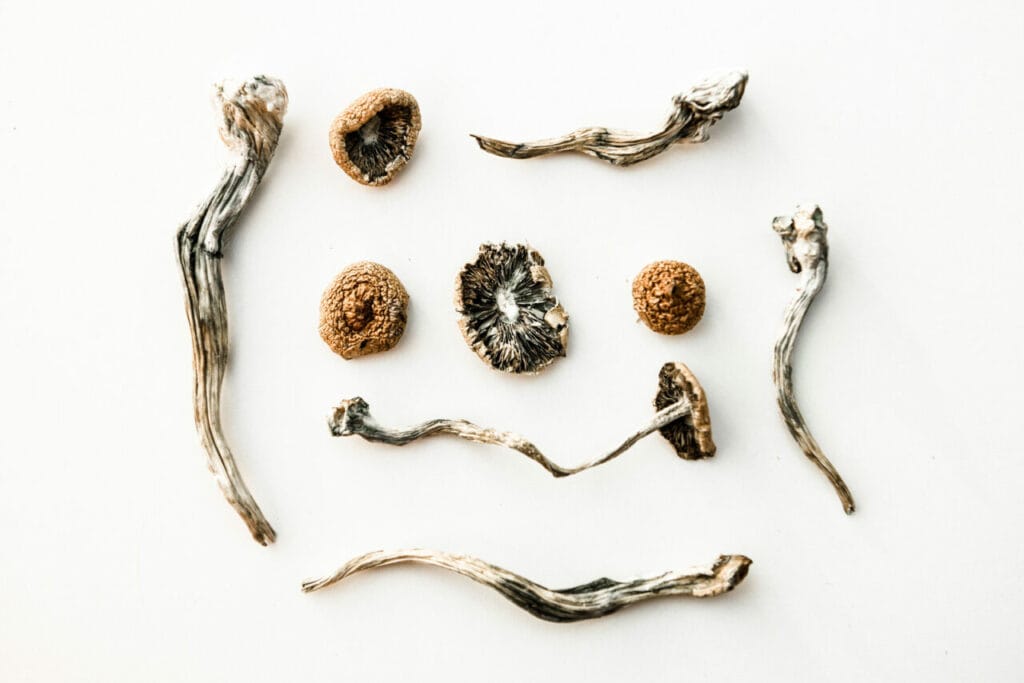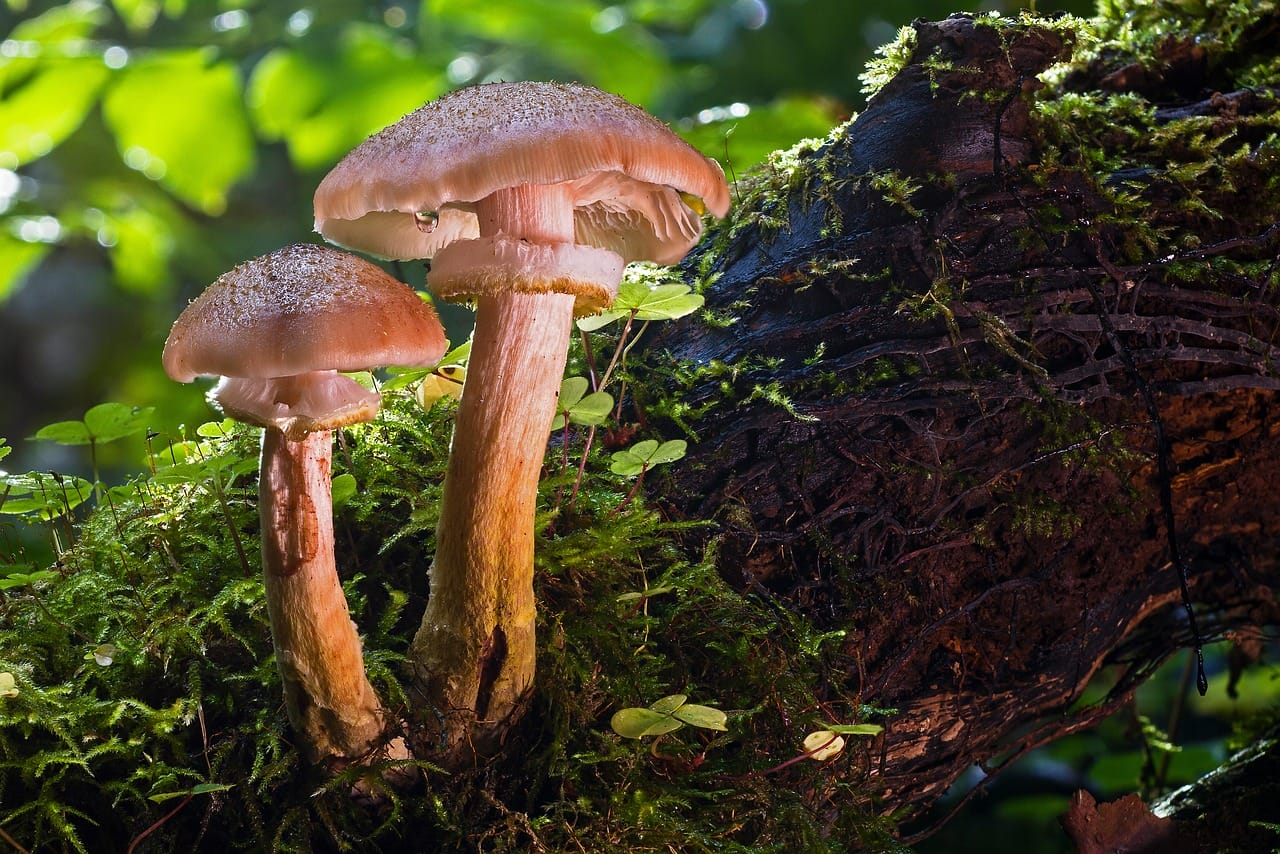While magic mushrooms were initially viewed by many Canadians as a psychedelic substance used primarily for recreational purposes, researchers have since discovered the powerful potential of the active ingredient, psilocybin, in treating a range of mental health issues.
With the availability of more research data, our understanding of the applications of psilocybin continues to grow. This increased awareness makes it easier for individuals to access these products through magic mushroom delivery services. A recent study throws light on its role in human consciousness. Could this be the key to its significant impact on the human brain? Let’s delve into this fascinating journey of exploring magic mushroom products.
Key Insights:
- Psychedelic magic mushrooms have shaped the cognitive functions of early humans, contributing to their survival.
- Due to their potential in relieving PTSD, depression, and anxiety, mushrooms play a crucial role in neurological health.
- The influence of psilocybin on consciousness and brain function might have boosted creativity, introspection and abstract thinking.

Historical Usage and Significance of Magic Mushrooms
Historical evidence indicates that our ancestors have been leveraging the power of psychedelic magic mushrooms for millennia. Indigenous populations utilized them in sacred rituals and traditional ceremonies to honor their gods. These mushrooms flourish worldwide, especially in subtropical and tropical regions like South and Central America, the Caribbean, Southeast Asia, and Africa.
Contribution of Mushrooms in Ancient Civilizations
Indigenous communities in Mexico have relied on these fungi for spiritual enlightenment, divine interaction, and religious practices since ancient times. The Aztec Indians of South America referred to it as “God’s Flesh,” using it in healing rituals.
Evidence of usage has been found dating back to:
- About 10,000 years ago in Australia
- Approximately 7,000 years ago in North Africa
- Almost 6,000 years ago in Spain.
Certain researchers present these results as evidence of the historical widespread use of psilocybin. Upon ingesting these mushrooms, individuals often experienced a euphoric state, with their hallucinations typically featuring complex geometric and visual designs.
The Significance of Mushrooms in Bronze Age Spanish History
In the mid-1990s, scientists discovered remnants, specifically hair strands from approximately 200 Bronze Age communities, hidden in a cave in Minorca, Spain. The artifacts were exceptionally well-preserved due to the cave’s entrance being sealed by fallen debris. Analyses revealed that these hair samples contained traces of three alkaloids, compounds recognized for their ability to alter human consciousness.
These discoveries provide intriguing insights into the reasons and methods ancient societies used these substances. Surprisingly, achieving an elevated state of consciousness was a typical practice during those times. Yet, the question remains, what was the impact of these substances on human evolution?
Psilocybin and the “Big Bang Theory” of Human Consciousness Evolution
Recently, there has been a revival in psychedelic research, reinforcing the idea that psychedelics contributed to the development of consciousness. This notion, known as the stoned ape theory, was proposed by ethnobotanist Terence McKenna. The theory posits that the use of psychedelics might have influenced the cognitive and cultural evolution of humans.
According to Dr. Thomas Falk, a professor of Philosophy and Education at the University of Dayton, this theory could potentially account for the so-called “creative explosion” that emerged among Homo sapiens around 40,000 years ago, representing a significant leap in early human cognitive abilities.
It’s postulated that psychedelics enabled early humans to inhabit self-constructed worlds. Over time, their enhanced cognitive abilities allowed them to replicate these experiences in their physical environments.
Terence McKenna’s “Food of the Gods” lays out his arguments that the stoned ape hypothesis has its origins in ancient shamanistic practices and a hypothesized range of plants and fungi.
“Capacity to Trigger Neurological and Psychological Transformations”
Psychoactive substances possess the potential to initiate profound neurological and psychological transformations. These changes could have significantly influenced the development of our kind.
Utilizing a multidisciplinary approach that combines biology, ethnobotany, and neuroscience, the study examines previous research on psilocybin and human consciousness. It proposes that early humans, as their habitats shifted from forests to grasslands, were exposed more frequently to animal dung, leading to an increase in their consumption of these fungi. The study cites the “stoned ape” theory, suggesting that this dietary change may have triggered substantial alterations in the brains of early hominids.
Effects of Psychoactive Substance Consumption
The potential consequences of fungi ingestion could vary from enhanced hunting and scavenging skills, increased sexual appetite, to heightened sensory perception. Coupled with the impact of psilocybin on consciousness and brain function, these influences could potentially foster creativity, introspection, and abstract thinking, which are vital for language development.
The Peruvian researchers leading the study emphasize the need for more research into these substances’ effects on the brain and human evolution. While it has affected brain regions associated with memory, decision-making, and introspection, its evolutionary repercussions remain an active area of study.
An independent genetic study indicates that magic mushrooms emerged about 67 million years ago. Humans’ consumption of these fungi began millions of years ago, significantly earlier than the use of marijuana.
What are Dried Magic Mushrooms?
They contain a hallucinogenic substance known as psilocybin. The effects can differ based on individual tolerance, body weight, and intake method. Here are some expected effects:
- Profound joy
- Feeling of tranquility
- Spiritual enlightenment and introspection
- A dreamy state of being disconnected from physical surroundings
- Altered visuals, such as seeing halos of light and vibrant colors
- Enhanced sense of well-being
Despite its use for recreational purposes, many people use it for its medicinal attributes, particularly for its positive effects on brain health.
Influence on Neurological Health
The active compound
Psilocybin interacts with serotonin receptors in the prefrontal cortex, altering mood, perception, and cognition. The heightened cognitive abilities, which include the manipulation of visual and auditory experiences, enhance the way tasks are performed.
Connection to Ancestral History
This principle can be traced back to our early ancestors, specifically the so-called ‘stoned apes’. Their discovery and use of these fungi, particularly during their ecological transition from forest to grassland habitats, resulted in increased exposure to animal feces, thereby increasing their intake of these mushrooms. The study refers to the “stoned ape” hypothesis, suggesting that this change in diet could have sparked significant alterations in the brain structures of early hominids.
The ingestion of psilocybin mushrooms may have influenced the evolution of their consciousness and cognitive abilities. This might provide an explanation for how they developed crucial survival skills.
Present and Future Implications
Recent research indicates that individuals with conditions such as cluster headaches, anxiety, anorexia, obsessive-compulsive disorder, PTSD, and depression typically have low levels of serotonin. While selective serotonin reuptake inhibitors (SSRIs) are the common treatment, they can take a significant amount of time to exhibit improvement. Conversely, shrooms can prompt immediate alterations in brain neuron connectivity.
Modern Psychedelic Research – Clinical Trials
Since the early 2000s, scientists have been exploring bespoke treatments for various psychiatric and behavioural disorders to cater to individual patient needs.
Due to its capability to infiltrate the central nervous system and boost cognitive function, it has proven to be effective in therapy. Research progress in 2020 indicates that psychedelic therapy employing psilocybin products eases severe depression.
Matthew Johnson, a professor at Johns Hopkins Medicine, stated that these substances alter the interaction between different brain systems. There is an observed increase in connectivity between brain regions that usually don’t communicate effectively. On the other hand, areas that generally interact a lot demonstrate reduced communication.
This induced disruption is not merely a side effect, but has therapeutic potential. Individuals with depression often find themselves trapped in self-critical, repetitive thought cycles, which worsen their condition. Psychedelics can break these patterns, enabling individuals to escape from entrenched negativity during a psychedelic experience. This leads to more flexible thinking patterns and an enhanced ability to manage critical thoughts.
Procure Magic Mushrooms Online: Your Gateway to Wellness
Choose from an extensive assortment of these regulated substances online. Each option is safe and tested in a laboratory to eliminate the danger of unwittingly buying toxic mushrooms. Reliable vendors assure the quality and safety of the products they offer.
| Product | Psilocybin Content | Psilocin Content | Benefits |
| Enigma | 0.76% | 0.07% | Boosts Focus and Generates Uplifting Effects |
| Atlantic Treasure Coast | 0.59% | 0.08% | Improves Concentration, Stimulates Creativity, Encourages Neuroplasticity |
| Blue Magnolia | 0.58% | 0.08% | Augments Memory, Aids in Managing Depression and Anxiety |
| Cambodian | 0.45% | 0.06% | Assists in Addressing PTSD and Anxiety, Helps in Substance Abuse Recovery, Enriches Mood |
Unmasking the Potent Force of Magic Mushrooms
All current progressions, including civilizations, urban growths, and societies, are products of various advancements. Though the stoned-ape theory may simply be a speculative debate among individuals, researchers are gradually uncovering proofs that validate the significant role of psilocybin in human evolution.
If you’re in pursuit of expedited cognitive growth, Shroom Store Canada’s magic mushroom delivery is the perfect choice. We offer a comprehensive range of superior quality shrooms from A to Z, with fast delivery available throughout British Columbia and further afield.
Delve into the future of personal growth — peruse our collection of superior psychedelics online Canada today.
Commonly Asked Questions
What species of shrooms were used by ancient civilizations?
Since a variety of fungi exist worldwide, there isn’t a single type consumed by all cultures. Some favored the well-known liberty caps, while others preferred Psilocybe cubensis. These mushrooms were typically consumed raw or used to create edible forms such as tea blends.
What is the role of psychedelics in contemporary human development?
In the modern era, psychedelics primarily function by stimulating the 5-HT2A receptor subtype. This interaction has proven beneficial in managing conditions related to stress and significantly affects creativity and social behavior. These effects can enhance adaptability and performance, especially in societies that greatly rely on knowledge and social cooperation.
Did spiritual practices involving shrooms influence human evolution?
Indeed, shrooms used in spiritual practices had a role in human evolution as they shaped cultural, religious, and social constructs. These practices foster a deep sense of connection, creativity, and community solidarity.
Articles You May Find Interesting:





